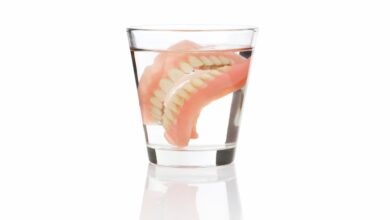Pros and Cons of Porcelain Veneers
Porcelain veneers are thin shells of ceramic laminates that are bonded to the front of your teeth. They are commonly used to whiten teeth, hide stains and improve the general appearance of your smile. Veneers are amongst the most popular cosmetic options that provide dramatic and long-lasting results. Despite flexibility in treating a wide range of cosmetic problems, dental veneers are not for everyone. As with any dental procedures, there are pros and cons to be weighed when contemplating porcelain veneer bonding.
Porcelain veneers have the following advantages:
Natural-Looking Aesthetics
If you are looking for a treatment option that makes your smile look natural yet attractive – i.e. the type that movie stars appear to be abundantly endowed with – then porcelain veneers are certainly worth considering. Even on close inspection, it’s difficult to tell them apart from real teeth. Veneers are the choice for people who wish to hide teeth stains caused by years of smoking or wine drinking that can’t be removed with teeth whitening.
The ceramic material possesses a translucency that closely resembles that of teeth enamel. Even the way they reflect light is similar, both giving that shiny glint that beautiful natural teeth are known for. The latter attribute distinguishes the aesthetic strength of veneers over crowns that are made with metal.
Porcelain Veneers are More Robust and Durable
Porcelain veneers are highly durable, able to withstand regular chewing and biting without causing damage. Since they are thin shells that cover your existing teeth, they also provide an additional layer of protection from external wear and damage. Obviously, the extent to which your veneers can hold up depends on the health and strength of your natural teeth, that provides the underlying structure.
Pocelain Veneers are Stain-Resistant
Due to the smooth surface of the ceramic material, stain-causing substances find it difficult to stick, hence making porcelain veneers highly stain resistant. That means coffee and red wine enthusiasts do not have to alter their drinking habits excessively, even though it is still advisable to cut down on stain-causing substances for general health reasons.
Porcelain veneers however, have the following disadvantages:
More Expensive
Porcelain veneers generally cost more than composite dental veneers, although the exact price is dependent on your individual requirements.
Tooth Sensitivity
Part of the veneering process involves removing a small amount of enamel from your natural tooth. This may render your tooth more sensitive to cold or hot food and beverages. However, the effects may be temporary and vary from person to person.


![36725534_illustration [Converted]](https://www.qualitydental.com.au/wp-content/uploads/2022/08/Quality-Dental-Sydney-46-teeth-whitening-390x220.jpg)
